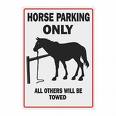 Today I purchased a parking pass at my new employer – and I had lots of choices. Being the “economizer” that I can sometimes be, I decided to get a pass for Zone 3 parking.
Today I purchased a parking pass at my new employer – and I had lots of choices. Being the “economizer” that I can sometimes be, I decided to get a pass for Zone 3 parking.
To park in Zone 3 cost only $225 (per year). While to park in a zone right next to my building would cost me $828 and one that is a few hundred yards further away would cost $364. What does my choice reveal about me? Well, first, it demonstrates how poorly I know the University. Had I spent a few days here before purchasing my pass, I would have selected the middle of the road option for $364, for argument’s sake let’s just assume that my choices were between the nearby lot and the faraway lot.
ASIDE: the annual cost of maintaining a parking space on campus is surely closer to $1,000 than it is to zero, so these prices appear to me to be low, if anything – particularly after arriving on campus during a busy time this morning.
Having just walked from Faraway lot to my office at a typical brisk pace, it took me 10 minutes on the nose from the time I shut the car door to the time I opened my office door. If I parked nearby, it would take me no more than 2 minutes. For the sake of exposition, let’s say that I will drive to campus 250 times during the course of the year, by parking in the Faraway Lot I have added 8 minutes per day, each way, to my commute time than if I had paid for access to Nearby Lot.
Was this a smart decision? I have no proper definition of smart to offer, but consider this. I “saved” a total of $603 for the year by parking in the Faraway Lot – this is the benefit of parking there. Did I commit a common economic error and not consider the costs? The major cost of parking there is the 4,000 minutes (2.67 days!) that I have added to my commute time each day. And this does not consider the discomfort of that walk when the temperatures here in Rochester plummet to below zero.
If I were posed with a question such as, “How much money would you require to have your life shortened by 2.67 days?” (do I get to pick WHICH days are eliminated?) the answer would surely be greater than $603. It probably would be higher by two orders of magnitude (STUDENTS: if a gun were to my head and I were asked to PAY to avoid losing this amount of time, do you think my answer would differ, and why?). So, did I make a good decision?
Your gut reaction (and mine) would be “No Way!” But my behavior actually seems to place a value on my life that falls right in the mid-range of risk studies that attempt to be more precise. If I expect to live 75 years, that is roughly 10,300 days of life. If I price 2.67 days at $603, then my actions indicate that I value my life at not more than roughly $6.2 million. That’s certainly more than my life insurance company thinks I am worth! Thus, my revealed behavior seems to indicate that I made a decision that squares with what most other people do when they make decisions about driving faster, buying a car, and various other life decisions.
Of course, the difference for me is that parking further away entails no risk, and that I could be doing a lot of interesting things with those 2.67 days each year. But I still think I made a good decision. Maybe this has something to do with it? Or is it something else?
Well Michael….it’s good for the body, (exercise) it’s good for the soul (10 min. of prayer every day) it’s good for your head (cold air will clear your mind). Either way we wish you the very best.
Love Mom & Dad
Cuba NY